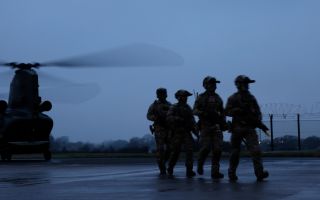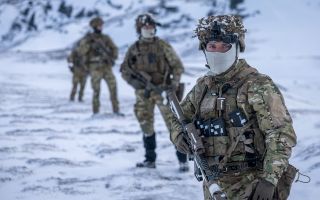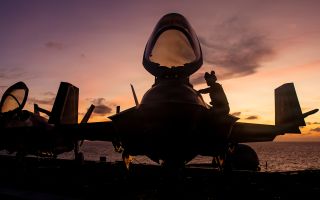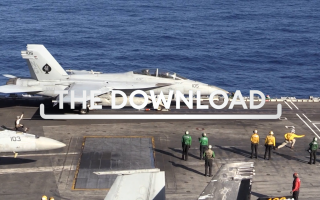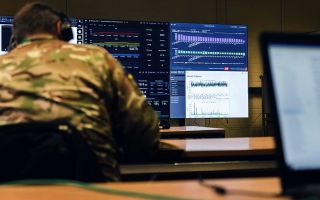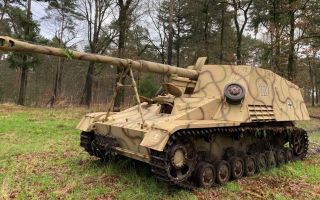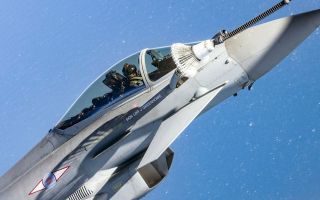
American officer becomes Royal Navy's first female frontline Wildcat pilot

A US Coast Guard officer is to become the first woman to fly the Royal Navy's Wildcat helicopter on frontline operations after earning her wings.
Lieutenant Commander Rachel Rychtanek graduated at a ceremony at RNAS Yeovilton alongside fellow pilot Lieutenant Elliott Wylie and observer Lieutenant Kieran Lovett.
The trio completed their training to fly the maritime version of the Wildcat helicopter, which is used by 825 and 815 Naval Air Squadrons as the Wildcat Maritime Force.
Lt Cdr Rychtanek, who is an exchange pilot from the US Coast Guard, said the highlight of her training was "getting back out onto the shipboard environment and watching the other students perform their first solo deck landings".
"I'm very excited for the opportunity to deploy to operational theatres that I otherwise may not have seen in my United States Coast Guard career," she said.
After 78 weeks of studying, exams and assessments, each graduate was presented with their wings ahead of frontline operations.
Lt Lovett said the final exercise at Prestwick was the most"demanding part of the training.
"A week-long exercise involving several aircraft from 825 NAS operating in the mountains and lochs of Scotland, something that really prepares you to go onto a frontline squadron," said Lt Lovett.
"It has been a long process and it is a relief to finish all my training.
"I am looking forward to going on the frontline squadron, it will be great to see more parts of the world I've not been to before, especially from a bird's eye view."
The ceremony at RNAS Yeovilton ended with a performance from the Black Cats display team, showcasing how the Wildcat can be used.
Lt Wylie, the other graduating pilot, initially joined the service to be a submariner but decided that a life underwater wasn't for him.
He then forged a career in engineering, working on Sea Kings and Merlins, and later becoming an officer.
'A lot of mental resilience'
But he said the course to become a Wildcat pilot "takes a lot of mental resilience".
"It's been hard work and a very difficult thing to do. You've got to appreciate how long it takes and the pressure over that period of time is difficult to deal with," he said.
"But when you're on a good course with good course mates who help each other through it makes a difference. That camaraderie."
He also said his wife Faye and daughter Annabelle had been a huge support.
"My wife has been a massive help. I've come home stressed and worked up, she calms me down and brings me back to reality," he said.
"She reminds me of what's important and you return to work refreshed."

